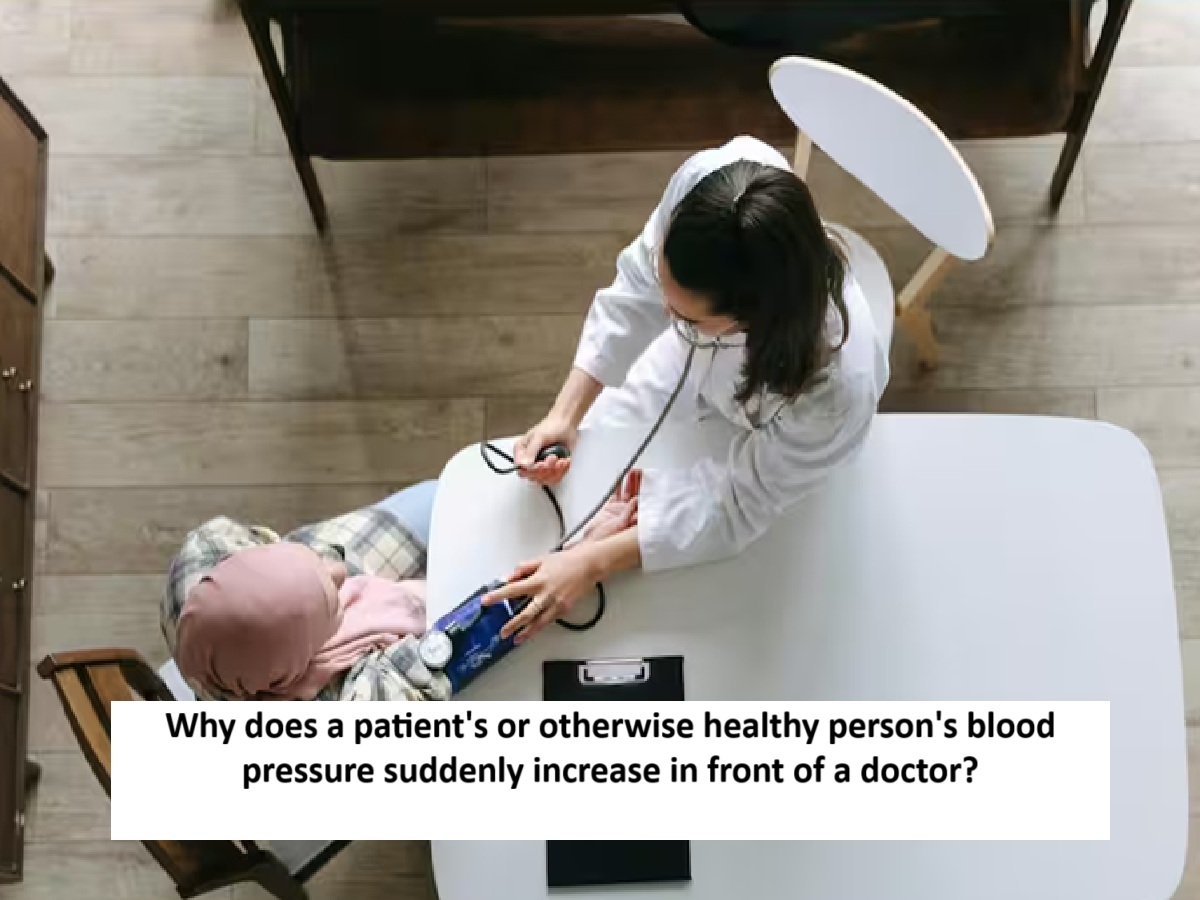
News Topical, Digital Desk : Imagine you're sitting in a doctor's clinic. The nurse checks your blood pressure, and suddenly the machine shows 150/95. However, when you go home, your blood pressure is 120/80, which means it's completely normal. Have you ever wondered why a patient, or even a healthy person, might experience a spike in blood pressure in front of a doctor? What's the real reason?
What exactly is this problem?
It's worth noting that a sudden spike in blood pressure in front of a doctor isn't magic; it's white coat hypertension. This means that your blood pressure spikes upon seeing a doctor's white coat. This problem has become so common these days that 1-2 out of 5 people suffer from it. New research suggests that it's not just a cause for concern, but it can also double your risk of heart disease.
How dangerous is this problem?
A 2024 study by the American Heart Association found that people who report high blood pressure to a doctor have twice the risk of heart attack compared to normal individuals. Researchers at Penn Medicine studied more than 60,000 patients and revealed that if ignored, it can become a silent killer. According to a 2024 ICMR report, more than 210 million people suffer from high blood pressure, and 20-30 percent of them are receiving the wrong medication due to white coat hypertension.
Why does this problem occur?
The name "White Coat Hypertension" clearly evokes the fear of doctors' white coats, injections, needles, and illness. When we arrive at a clinic or hospital, the sight of a doctor's coat makes our heart beat faster. This causes a sudden spike in blood pressure. This isn't a new disease. It was identified in the 1980s, but by 2025, several studies have uncovered the secrets behind it.
This was revealed in a study conducted in Japan
A study of 153 people was conducted in Ohasama, Japan, in 2023. This study, which spanned nearly four years, found that the effects of this condition are long-lasting and frequently recurring. If your blood pressure is higher than 140/90 in the office, but lower than 130/80 during 24-hour monitoring, you may have white coat syndrome. This condition is more common in women, the elderly, and people who are stressed.
These tips will come in handy
Now the question arises as to how to prevent white coat hypertension. Let us explain the methods.
- Check your blood pressure at home twice a day, morning and evening. If your blood pressure remains high at work for three consecutive days, have an ABPM.
- When visiting your doctor, take deep breaths. Sit quietly for five minutes. Listen to music or practice breathing exercises.
- Reduce your salt intake. Eat more fruits and vegetables. Walk for 30 minutes daily. Quit smoking and alcohol.
--Advertisement--

 Share
Share



